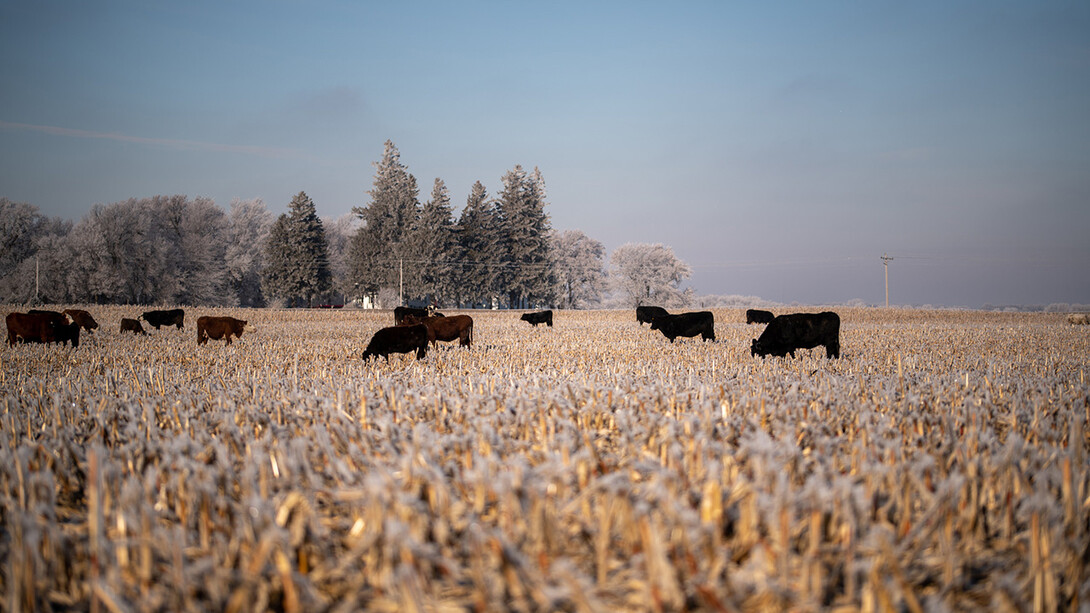
Lincoln, Neb. —Nebraska net farm income is projected to decline in 2024, according to a new report from the Rural and Farm Finance Policy Analysis Center.
The center, working with agricultural economists from the Center for Agricultural Profitability at the University of Nebraska-Lincoln, said in its “Fall 2024 Nebraska Farm Income Outlook” that Nebraska’s 2024 net farm income is estimated at $7.69 billion.
After record-setting farm income levels in 2023, Nebraska farm income declines in 2024. “In 2024, total farm receipts are projected to decline by $1.40 billion (-4%), as the $1.16 billion (6%) increase in livestock receipts would only partially offset the $1.64 billion (-12%) fall in crop receipts and the $0.90 billion (-52%) reduction in crop insurance indemnities,” said the report.
Despite declining 17% in 2024, Nebraska net farm income is still expected to become the third highest on record, following 2023 and 2021. The report also compares the projected 17% reduction in state net farm income to the projected 6.2% decline in the U.S. net farm income projected by Mizzou’s Food and Agricultural Policy Research Institute (FAPRI-MU).
Other key findings from the report include:
- Despite an increase in production levels for field crops, lower prices reduce crop receipts by 12% in 2024. Lower corn and soybean receipts account for a majority of the decline in receipts.
- Nebraska’s cattle inventory is projected to grow slightly in 2024, increasing by 164,000 head, as forage conditions improve across the state. Livestock receipts are projected to increase by $1.2 billion in 2024.
- Production expenses are set to increase in 2024, as rising purchased livestock, and rent expenses offset reductions in feed, fertilizer, and fuel expenses.
“As producers are adapting to current market realities of falling commodity prices and rising production expenses, but the coming year presents challenges but also opportunities for long-term profitability,” said Brad Lubben, an agricultural policy specialist with Nebraska Extension and a co-author of the report. "While Nebraska farm income is expected to decline further in 2025, the state's diversified agricultural base, notably continued strength in its livestock sector, will continue to play a crucial role in mitigating the impacts of lower crop prices and production challenges."
The Fall 2024 Farm Income Outlook is co-published by the Center for Agricultural Profitability at the University of Nebraska-Lincoln and RaFF at the University of Missouri, which provides objective policy analysis and informs decision makers on issues affecting farm and rural finances. The center collaborates with a number of states to develop farm income projections with local expertise.
“RaFF’s Farm Income Outlook for calendar years 2024 and 2025 is intended to inform policymakers, industry analysts, and agricultural practitioners about the expected profitability of the local agricultural sector and its main drivers. RaFF’s state-level projections complement and add granularity to national projections by the USDA and FAPRI-MU, providing valuable insights on local agricultural trends” said RaFF Director Alejandro Plastina.
The full report and data tables can be found at https://cap.unl.edu/farm-income.
Farm Income Webinar
Lubben and Plastina will present a webinar covering 2024 Nebraska and U.S. farm income and outlook at noon Central time on Oct. 31. Registration is free at https://cap.unl.edu/farm-income.







